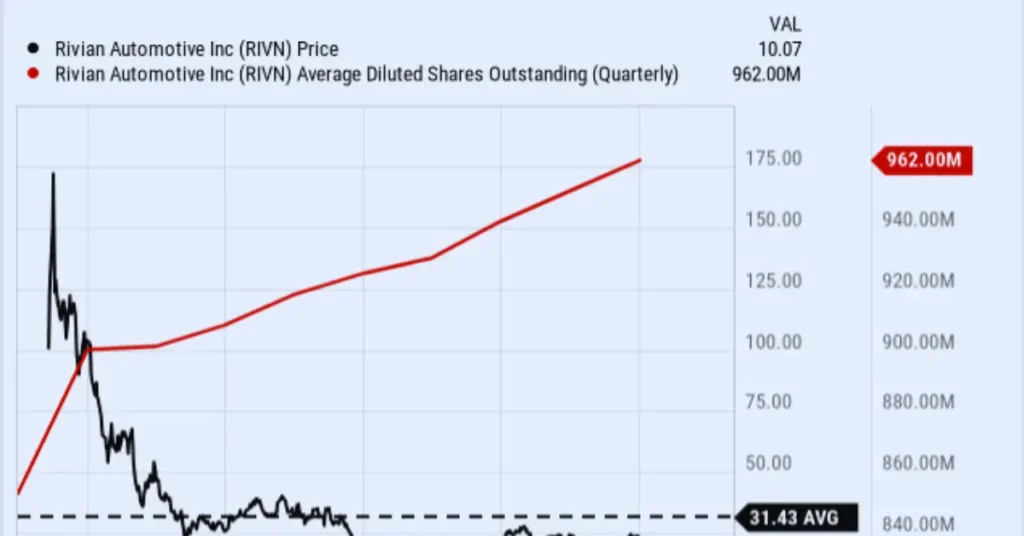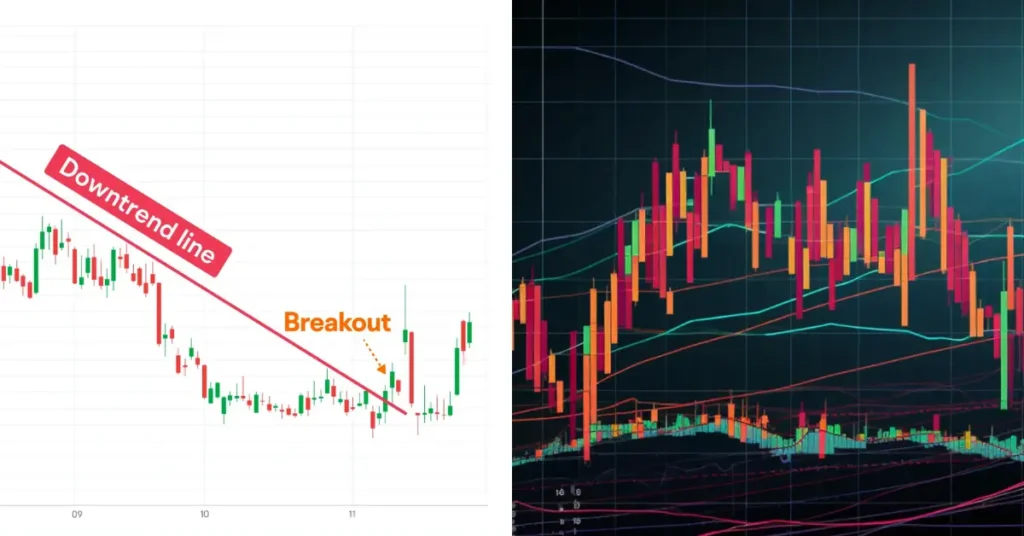Rivian, the American electric vehicle (EV) manufacturer, has been grabbing headlines ever since its initial public offering (IPO) in 2021. With Tesla already dominating the EV landscape, Rivian sought to carve out its niche by focusing on electric trucks and SUVs, positioning itself as a competitor with a unique edge. However, the stock market’s volatility, coupled with production challenges and fierce competition, has made investing in Rivian stock a topic of great debate. In this comprehensive guide, we’ll delve into Rivian’s stock trends, predictions, and strategies for investors.
Understanding Rivian’s Market Position in the EV Industry
Rivian isn’t just another EV manufacturer; it’s a company with a unique vision. With key partnerships with Amazon and Ford, Rivian aims to disrupt the traditional car market by creating adventure-ready electric vehicles that appeal to outdoor enthusiasts and businesses alike. Their flagship models, the R1T pickup truck and R1S SUV, have captivated the market with their rugged features, high performance, and eco-friendly credentials.
The Rivian Difference: What Sets It Apart?
Unlike other EV manufacturers, Rivian’s focus isn’t solely on luxury sedans or commuter cars. Instead, Rivian’s vehicles are designed to cater to those seeking adventure in an electric package. This niche has garnered a dedicated following, especially with the R1T’s ability to tackle tough terrains while maintaining sustainability.
The key to Rivian’s potential success lies in its dual-market approach:
- Adventure Vehicles: Rivian’s trucks and SUVs are built for off-road enthusiasts, combining electric power with rugged capabilities.
- Electric Delivery Vans: Rivian has been working closely with Amazon to create electric delivery vans, a partnership that’s crucial for securing long-term revenue streams.
Rivian Stock History and Performance
Since Rivian’s IPO on November 10, 2021, its stock has experienced extreme highs and lows. While the IPO price of $78 per share sparked significant investor excitement, the price surged to $172 on the first day of trading. However, the stock’s performance soon became volatile due to production issues and increased competition in the EV space.
Here’s a snapshot of Rivian’s stock performance:
| Metric | Details |
| Stock Symbol | RIVN |
| IPO Date | November 10, 2021 |
| IPO Price | $78 |
| First Day Closing Price | $172 |
| Current Price | $33 (as of latest trading) |
| 52-Week Range | $15 – $40 |
| Market Cap | $30 billion |
| Average Volume | 10 million shares/day |
| PE Ratio | N/A (Not profitable yet) |
| Revenue (TTM) | $1.7 billion |
| Net Income (TTM) | -$1.4 billion |
| Key Partnerships | Amazon, Ford |
| Production Target (2023) | 50,000 vehicles |
Stock Volatility and Its Impact on Investors
Rivian’s stock price has been highly volatile due to production delays, supply chain challenges, and broader market conditions. From the early days of its IPO surge to its dramatic drop below $20 in 2022, the stock has fluctuated significantly, making it a risky investment. For instance, Rivian News Today reports how the company faces challenges in scaling production while maintaining high-quality standards.
Rivian Stock News Today: Investors are Keeping a Close Eye
Recently, Rivian Stock News Today Live highlighted developments such as Rivian’s announcement of meeting its annual production goals for 2023. However, some analysts remain cautious, pointing to concerns about Rivian loan repayments and the long-term sustainability of its business model.
Market Sentiment and Analyst Opinions on Rivian Stock

Rivian Stock News and Analyst Forecasts
Analysts’ opinions on Rivian stock have been mixed. On one hand, there is a lot of optimism due to Rivian’s partnerships with Amazon and Ford. These relationships provide valuable revenue streams, and the collaboration with Amazon ensures a growing market for Rivian’s electric delivery vans.
However, analysts have also raised concerns about the company’s ability to meet its ambitious production targets, citing supply chain disruptions and competition from more established players like Tesla stock (TSLA).
Optimistic Analysts vs. Cautious Analysts
Some analysts remain bullish on Rivian’s long-term potential, predicting substantial growth once production is scaled. Others, however, point to the stock price of Tesla as a reason for caution. Tesla, being the leader in the EV market, casts a long shadow, and Rivian will need to overcome significant production hurdles to catch up.
Rivian Loan and Financial Stability
Despite the hype, Rivian loan repayments could become a sticking point for investors. Rivian has accumulated a considerable amount of debt as it tries to scale its operations. In recent months, analysts have warned that this may affect the company’s ability to maintain a positive cash flow, making it difficult for Rivian to compete with established players like Nvidia stocks (NVDA), which has secured its position in the market through strong financial backing.
Rivian vs. Tesla and Other EV Stocks
Rivian’s stock performance is often compared to that of Tesla stock (TSLA), the undisputed leader in the electric vehicle market. However, Rivian has been carving out its own path, focusing on a niche market that Tesla has yet to dominate: electric trucks and SUVs.
Tesla Stock and Rivian’s Competition
While Tesla stock continues to rise, driven by its market dominance and expansion into new vehicle categories, Rivian must compete in an already crowded market. Tesla’s extensive production capacity, established infrastructure, and loyal customer base present significant barriers for Rivian. For example, Tesla stock price prediction 2025 is expected to continue growing as the company expands its model range and autonomous driving capabilities.
Rivian vs. Lucid Motors
Another competitor, Lucid Motors, targets the luxury sedan market with its high-end Air sedan. Unlike Rivian, which focuses on adventure vehicles, Lucid is vying for a place in the premium segment, competing directly with Tesla’s Model S. Despite the differences in focus, both companies face the same production hurdles and competition.
Rivian vs. Nio
Nio, a Chinese EV manufacturer, is another key player in the electric vehicle space. Nio has dominated the Chinese market with its electric sedans and has even pioneered the innovative concept of battery swapping. Rivian, on the other hand, faces the challenge of competing in the international market, especially in China, where Nio holds a significant market share.
Key Factors Influencing Rivian’s Stock Performance

Production and Supply Chain Challenges
Rivian’s production challenges have been well-documented. Delays in ramping up manufacturing, difficulties securing semiconductor chips, and ongoing supply chain disruptions have hindered Rivian’s ability to meet investor expectations. While Rivian’s target of 50,000 vehicles for 2023 is ambitious, the company still faces obstacles in scaling production efficiently.
Competition from Tesla and New Entrants
Rivian must contend with competition not only from Tesla stock, which continues to innovate with new models and autonomous driving features, but also from other newcomers like Lucid Motors and Nio. As competition intensifies, Rivian will need to differentiate itself and prove its ability to produce at scale.
Economic Conditions Impacting the EV Industry
The overall economic landscape plays a significant role in Rivian’s performance. Rising inflation and interest rates may impact consumer demand for luxury items like electric vehicles. Additionally, global economic instability could affect the willingness of investors to take risks on new companies like Rivian.
Strategic Partnerships with Amazon and Ford
The partnerships with Amazon and Ford provide Rivian with essential backing, both financially and in terms of guaranteed customer bases. Amazon’s commitment to buying electric delivery vans and Ford’s collaboration on technology will likely offer stable revenue streams and long-term growth potential for Rivian. However, over-reliance on these partnerships could pose a risk if either partner were to alter their commitment to Rivian.
Investment Strategies for Rivian Stock
Short-Term Investment Strategy
Given the volatility of Rivian’s stock, short-term investors may look to capitalize on price fluctuations. Since Rivian’s stock often swings wildly based on news (such as production updates or Rivian news today), traders can buy when prices dip and sell when they rise. For instance, a Rivian stock chart might reveal potential buying points during low periods following negative news.
How to Capitalize on Market Volatility
- Watch for Earnings Reports: Rivian’s quarterly earnings reports often set the tone for stock movement.
- Monitor Rivian News: Stay updated on production targets and partnerships, as these developments can trigger stock price changes.
Long-Term Investment Strategy
For long-term investors, Rivian offers a chance to ride the wave of the electric vehicle revolution. Rivian’s unique position in the market—focusing on adventure vehicles and business delivery vans—could provide substantial growth over the next decade. Investors should focus on Rivian’s ability to scale production, maintain partnerships, and build brand loyalty.
FAQs
Is Rivian a buy, sell, or hold?
Analysts are generally recommending a “hold” for Rivian stock. While some analysts are optimistic, forecasting a potential price increase of up to 40% over the next year, Rivian faces challenges such as supply chain constraints and market competition, which contribute to a more cautious outlook. The consensus among analysts is to maintain current positions rather than buy or sell.
What will Rivian stock be worth in 2025?
Rivian’s stock price in 2025 is projected to fluctuate. Analysts have set an average price target of around $15.73, with some optimistic projections reaching up to $28.00. These predictions suggest that Rivian’s stock could experience some growth, but significant challenges remain in the competitive electric vehicle market.
Who owns most of Rivian?
Rivian’s largest shareholders include institutional investors and key stakeholders such as Amazon, which holds a significant share due to Rivian’s partnership for electric delivery vehicles. The company was also backed by major investors like Ford and T. Rowe Price.
What is the target price for Rivian?
The target price for Rivian stock ranges from a low of $11.00 to a high of $40.00, with analysts expecting an average price of about $25.39 within the next 12 months.
Conclusion: Is Rivian Stock Worth the Investment?
Rivian’s path since its IPO has been a mix of excitement and challenges. With its focus on adventure vehicles and electric delivery vans, it stands out in the crowded EV market. Strategic partnerships with Amazon and Ford provide strong backing, but Rivian still faces significant hurdles, including production challenges and competition from giants like Tesla and newcomers like Lucid Motors.
For investors, Rivian represents a high-risk, high-reward opportunity. The Rivian stock price prediction for 2025 looks promising if the company can scale production and meet growing demand. However, the volatility of the stock and the unpredictability of the EV industry mean it’s important to stay informed and make decisions based on the latest Rivian news today.